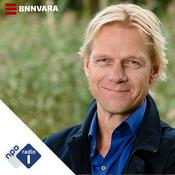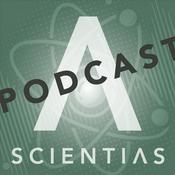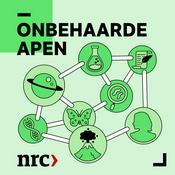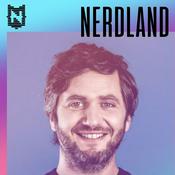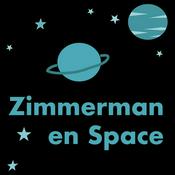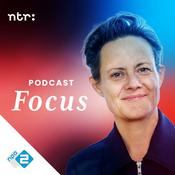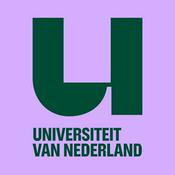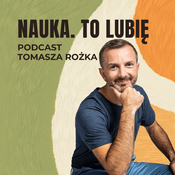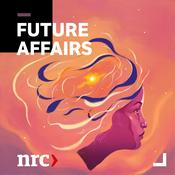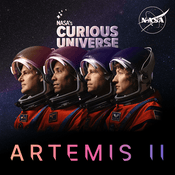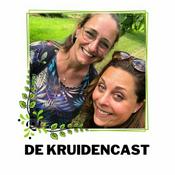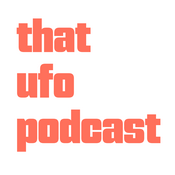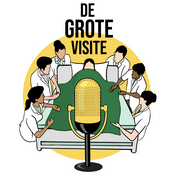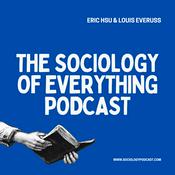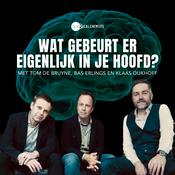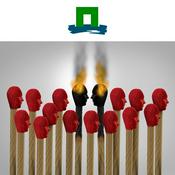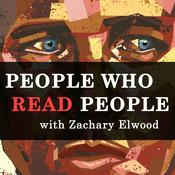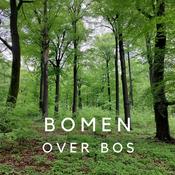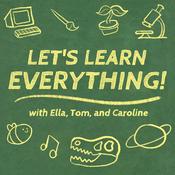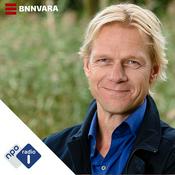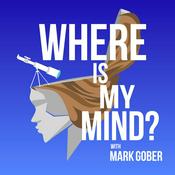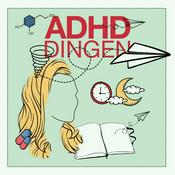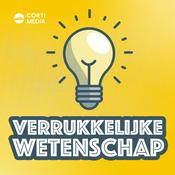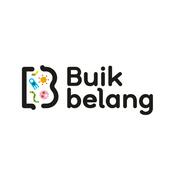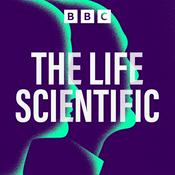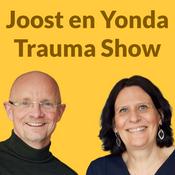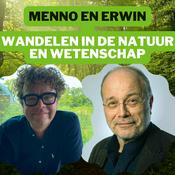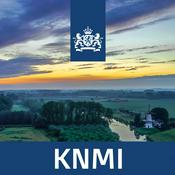4 afleveringen

Chaos provides a ladder: Finding opportunity in the cow conversation with Tara McCarthy
08-7-2025 | 36 Min.
“Chaos provides a ladder”: Finding opportunity in the conversation about cows In the latest episode of the World Without Cows podcast, hosts Michelle Michael and Brandon Whitworth are joined by Tara McCarthy, Alltech’s global vice president of ESG, to reflect on the impact of the World Without Cows documentary and explore how it’s catalyzing real conversations around sustainability, food systems and the future of agriculture — both inside and outside the industry. What unfolds is a candid, optimistic and energizing discussion about why this moment feels like a turning point — and how, as Tara says, “chaos provides a ladder.”

Nature’s ultimate recyclers: Brian Sundberg on cows’ ability to upcycle waste into foods we need
29-4-2025 | 14 Min.
Brian Sundberg, dairy nutritionist and cofounder of Progressive Dairy Solutions, joined the World Without Cows Podcast to discuss cows’ ability to upcycle food waste into foods we need. Progressive Dairy Solutions is a nutrition and management consulting firm that works with dairy farms across the U.S. and internationally, formulating diets for 1.2 million cows and overseeing $4.4 billion in annual feed investments, Brian explains. What’s truly remarkable, Brian says, is what those cows are eating — and why it matters for the planet.

Telling the full story: Jay Waldvogel on the power of perspective in agriculture
11-3-2025 | 28 Min.
Jay Waldvogel has spent more than 25 years in the global dairy industry, but even in retirement, his passion for progress hasn’t faded. In this recent podcast with World Without Cows filmmakers Michelle Michael and Brandon Whitworth, Waldvogel reflected on the complexities of dairy farming, the importance of storytelling in agriculture, the urgency of finding sustainable solutions, and why a world without cows is a concept that needs to be explored — not as an agenda, but as a way to reframe the conversation. Waldvogel retired in 2024 from Dairy Farmers of America, where he most recently served as senior vice president of strategy and international development. He is a featured expert in the World Without Cows documentary, which examines cultural, economic, nutritional and environmental impact of cows around the world — and the possible repercussions of their absence. Shifting the narrative: From defense to dialogue For too long, agriculture has been on the defensive, Waldvogel says. Critics often focus on the environmental and ethical challenges of livestock farming, and while these concerns deserve attention, they can often overshadow the bigger picture: the essential role of cows in food security, nutrition and rural economies. “When you look at dairy holistically, the positives far outweigh the negatives,” Waldvogel explains. “But we need to have conversations that address both sides.” The dairy industry has all the facts, science and data to support its case, but it has struggled to connect the dots into a compelling narrative, Waldvogel says. That’s where World Without Cows steps in. By exploring the hypothetical removal of cows from our world, the documentary forces a deeper conversation: What would we lose? What would change? What unintended consequences would arise? “It’s always in the middle,” Waldvogel says. “Nobody’s suggesting extremes, but the extremes force you to think differently about what that middle could be.” A catalyst for conversation One of the documentary’s greatest strengths is its ability to bring people to the table. Instead of pushing a solution, it creates a platform for discussion. In today’s polarized world, where people often entrench themselves in their own perspectives, meaningful dialogue is rare — but necessary. Waldvogel has long believed in the value of inviting outside voices, even those critical of agriculture, into the conversation. “You can never get too comfortable in your own belief,” he says. “The best advice on how to evolve and improve often comes from those who look in from the outside.” This approach is particularly important in addressing the misinformation that plagues discussions about agriculture. “We’ve kind of lost what is fact, what is science, what is truth,” Waldvogel says. “Everybody is entitled to their own opinion, but you’re not entitled to your own facts.” Beyond conversation: Finding real solutions The challenges facing agriculture aren’t abstract — they are real, they’re urgent, and they require tangible solutions. Waldvogel’s work with Dairy Nourishes Africa (DNA), for example, highlights one path forward: improving dairy production efficiency in developing regions. (Dairy Nourishes Africa is an initiative led by the Global Dairy Platform that aims to help create sustainable and resilient food systems across the continent.) The problem isn’t just about emissions or land use — it’s about food security. In places like Tanzania, dairy has the potential to transform livelihoods, providing nutrition and economic stability. But to make that happen, farmers need more than just cows — they need education, market access and infrastructure. DNA works to create a sustainable dairy value chain, collaborating with organizations like the Gates Foundation and local groups to provide resources, training and policy support. “How do you go from incremental improvement in small pilots to fundamentally transforming food systems?” Waldvogel asks. The answer lies in building systems that are economically viable, environmentally sustainable and socially impactful. The path to net zero Waldvogel also emphasizes the dairy industry’s efforts to reduce its environmental footprint. He points to initiatives like Pathways to Dairy Net Zero, which provides tools and resources to help farmers progress toward net-zero emissions. In developed markets like the U.S., he believes achieving net zero is possible, though it will require significant effort and investment. “All the tools are there,” he says. “It’s hard work, but it’s doable.” In developing markets, the challenge is even greater. Yet, even small improvements — like better animal husbandry practices — can have a significant impact. “Something as simple as making a cow more comfortable can increase milk production,” Waldvogel explains. A hopeful future — If we get it right The numbers are daunting. By 2050, Africa alone will account for 25% of the global population. Feeding the world will require producing as much food in the next 30 to 40 years as we have in the past 10,000 years combined, according to Jack Bobo, food futurist and executive director of the UCLA Rothman Family Institute for Food Studies, who is also featured in the documentary. Yet, Waldvogel remains hopeful. “This isn’t impossible,” he insists. “We have the resources, the knowledge and the commitment. The missing piece is simply aligning those efforts and taking action.” The path forward isn’t about choosing between agriculture and the environment — it’s about recognizing that the two must coexist. By reframing the conversation and moving beyond rhetoric toward practical, scalable solutions, we can create a future where dairy farming is both sustainable and essential. As Waldvogel puts it, “We need to get busy and stick with it. The stakes are too high to do otherwise.” About World Without Cows World Without Cows is a feature-length documentary that explores the complexity behind a seemingly simple question: “Are we better off in a world without cows?” Through interviews with farmers, ranchers, scientists and others on the front lines of agriculture and science, award-winning journalists Michelle Michael and Brandon Whitworth take viewers on a global journey to deepen their understanding of everything cows contribute and what the world might look like without them.

Progress and pressure: Justin Sherrard on the path to sustainable cattle production
28-2-2025 | 25 Min.
Documentary filmmakers and former journalists Michelle Michael and Brandon Whitworth kicked off their new World Without Cows podcast with a conversation with Justin Sherrard, vice president of the Global Roundtable for Sustainable Beef and a director at Breedr, a cattle management software company. Justin is an independent animal protein business advisor who focuses on supply chains, innovation and sustainability. Previously, he was a global strategist for animal protein at Rabobank, a global leader in agricultural financial services. Much like the documentary, the World Without Cows podcast delves into the profound implications of a scenario where cows no longer exist, examining the multifaceted roles cows play in our global ecosystem. In this first episode of their thought-provoking podcast, Michelle and Brandon reconnect with Justin, who is featured in the World Without Cows documentary, to discuss the future of sustainable food production and the beef industry. Since World Without Cows was filmed ... Justin noted several advancements in the agriculture industry since his first interview for World Without Cows, including more concrete commitments to sustainability by participants across the supply chain. “We see more commitment, and that’s important. Commitments matter,” Justin said. “Goals being set, milestones being put down and markers being placed there for progress.” This progress is crucial, as it lays the groundwork for long-term improvements in the industry. However, Justin also pointed out that while there is progress, it is not uniform across all areas. Some companies have taken a competitive approach to sustainability, which can be beneficial, but only if foundational elements are agreed upon and put in place. “What are the metrics by which we’re going to measure progress? Are we aligned on that?” he questioned. Without these common metrics, Justin said, the industry risks confusing consumers. Promising opportunities One of the most promising opportunities lies in the potential of animal agriculture to achieve net positive impacts on climate and biodiversity. Practices such as upcycling biomass that would otherwise go to waste can contribute positively to the environment. “The main game is how we continue to provide nutritious, safe, sustainable food to nourish everyone in the world in the right way,” Justin said. Another opportunity is the role of technology in advancing sustainability. There have been significant technological advancements in agriculture that can help achieve sustainability goals. “The solutions are clearer, the progress that’s been made there, the commercialization of those technologies, it’s all moving in the right direction,” he noted. Embracing these technologies can drive efficiency and innovation in sustainable practices. Obstacles to sustainable cattle production Despite these opportunities, several obstacles stand in the path of sustainable cattle production. One major challenge is the lack of clear market signals that reward sustainable practices. These signals are essential for aligning the industry’s efforts with consumer expectations and driving meaningful progress. “Until we really get clear market signals that say this is what we want and this is what you’re going to be rewarded for, we’re going to continue to struggle,” Justin explained. Another obstacle is the risk of “carbon tunnel vision,” where the focus on reducing greenhouse gas emissions overshadows other important sustainability goals like biodiversity and animal welfare. A holistic approach to sustainability is necessary to address all environmental impacts comprehensively. “We can’t get trapped into this carbon tunnel vision and don’t think about this in a broader context,” Justin said. About World Without Cows World Without Cows is a feature-length documentary that explores the complexity behind a seemingly simple question: “Are we better off in a world without cows?” Through interviews with farmers, ranchers, scientistsand others on the front lines of agriculture and science, award-winning journalists Michelle Michael and Brandon Whitworth take viewers on a global journey to deepen their understanding of everything cows contribute and what the world might look like without them. Official website: worldwithoutcows.com Documentary social media accounts: https://www.facebook.com/WorldWithoutCows https://x.com/worldwithoutcow https://www.instagram.com/worldwithoutcows/ https://www.linkedin.com/company/worldwithoutcows/ https://www.tiktok.com/@worldwithoutcows https://www.youtube.com/@PlanetofPlenty Our filmmakers' social accounts: Michelle Michael https://www.instagram.com/farmfilmmaker https://www.facebook.com/farmfilmmaker https://www.linkedin.com/in/michelle-michael-9395a977/ Brandon Whitworth https://www.instagram.com/theagstoryteller/ https://www.facebook.com/TheAgStoryteller https://www.linkedin.com/in/theagstoryteller/
Meer Wetenschap podcasts
Trending Wetenschap -podcasts
Over World Without Cows Podcast
Luister naar World Without Cows Podcast, The Rest Is Science en vele andere podcasts van over de hele wereld met de radio.net-app

Ontvang de gratis radio.net app
- Zenders en podcasts om te bookmarken
- Streamen via Wi-Fi of Bluetooth
- Ondersteunt Carplay & Android Auto
- Veel andere app-functies
Ontvang de gratis radio.net app
- Zenders en podcasts om te bookmarken
- Streamen via Wi-Fi of Bluetooth
- Ondersteunt Carplay & Android Auto
- Veel andere app-functies


World Without Cows Podcast
download de app,
luisteren.

